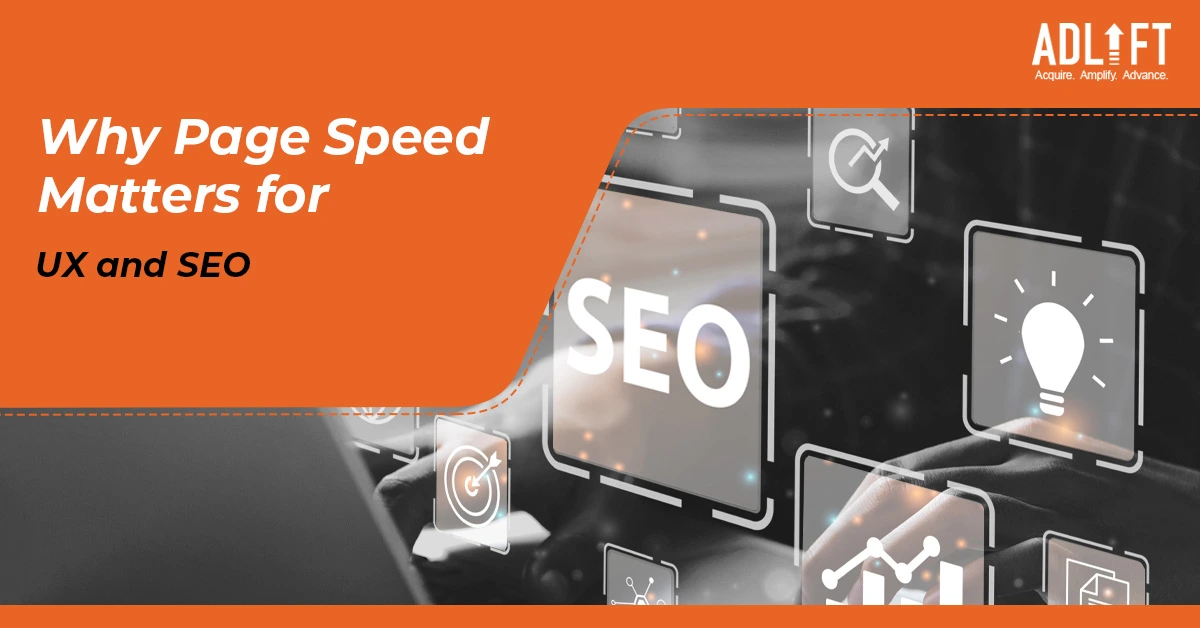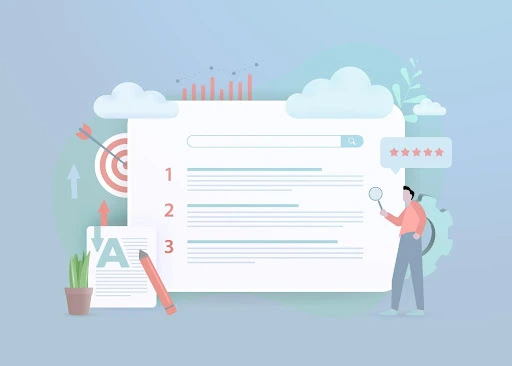Understanding Why Page Speed Matters for User Experience and SEO

Page speed is a vital component of user experience and search engine optimization. Essentially, it denotes how quickly a web page loads in a browser. The faster a page loads, the more improved the user experience, and the more likely it is to achieve higher search engine rankings. We will explore page speed further in this article and offer guidance on how to enhance it.
What is Page Speed?
Page speed is the rate at which a web page’s content loads, influenced by various factors such as page size, number of images and videos, server response time, and amount of code on the page. Google’s Page Speed Insights tool is an excellent resource for analyzing page speed and recognizing areas for improvement.
Why is Page Speed Significant for User Experience?
Page speed is also essential for SEO because it is one of the ranking factors used by Google’s algorithm. Google has stated that page speed is a ranking factor on both desktop and mobile devices. A slow-loading page can negatively impact search engine rankings, leading to a lower position in the search engine results pages (SERPs). This, in turn, can result in lower traffic to the site, which can impact revenue and business growth. Improving page speed can, therefore, lead to higher search engine rankings and more traffic.
Why is Page Speed Significant for SEO?
Page speed is essential for SEO since it is one of Google’s algorithm’s ranking factors. Google has stated that page speed is a ranking factor for both desktop and mobile devices. Slow-loading pages can negatively impact search engine rankings, leading to lower rankings in search engine results pages (SERPs). In turn, this may result in reduced traffic to the site, affecting revenue and business growth. Improving page speed can increase search engine rankings, driving more traffic to the site.
How to Improve Page Speed?
Improving page speed can be challenging, but it is worthwhile. Here are some tips for enhancing page speed:
Optimize Images and Videos
Large image and video files can slow down a webpage. Optimize images and videos by compressing them without compromising quality. This will reduce the file size and speed up the page load time.
Minimize HTTP Requests
Each element on a webpage requires an HTTP request, which can slow down the page load time. Minimize HTTP requests by reducing the number of elements on the page, such as images, scripts, and stylesheets.
Utilize a Content Delivery Network (CDN)
A CDN can enhance page speed by caching content on servers located closer to the user. This reduces the distance data needs to travel, speeding up the page load time.
Reduce Server Response Time
The server response time is the time it takes for the server to respond to a user’s request. A slow server response time can impact page speed. Reduce server response time by upgrading hosting plans or using a content management system (CMS) optimized for speed.
Enable Browser Caching
Browser caching stores frequently accessed files, such as images and stylesheets, on the user’s computer. This reduces the number of HTTP requests needed and speeds up the page load time.
Minimize Code
Large amounts of code can slow down a webpage. Minimize code by removing unnecessary elements and consolidating files, such as scripts and stylesheets.
Page speed is a critical factor for both user experience and SEO. A slow-loading webpage can lead to high bounce rates, low engagement, and lower search engine rankings. On the other hand, a fast-loading webpage can result in higher traffic, engagement, and revenue. By following the tips provided in this article, website owners can improve their page speed, which can ultimately lead to better user experience, higher search engine rankings, and business growth. Therefore, it is essential to prioritize page speed and regularly monitor it using tools such as Google’s PageSpeed Insights to ensure optimal performance.
FAQs
Ans: Page speed matters for user experience because it affects satisfaction, engagement, conversions, mobile experience, search rankings, and competitiveness. Slow-loading pages frustrate users, leading to negative perceptions and increased bounce rates. Faster page speed improves engagement metrics, conversion rates, and mobile experience. It is a ranking factor for search engines and helps retain users in a competitive landscape. Prioritizing page speed optimization enhances user satisfaction, engagement, conversions, mobile experience, search rankings, and competitiveness.
Ans: Page speed is crucial for SEO. Search engines, like Google, consider it as a ranking factor. Faster-loading pages tend to rank higher in search results, leading to increased visibility and organic traffic. A slow website may experience lower crawl rates, affecting indexation and ultimately search engine rankings.
Ans. Key factors influencing page speed include hosting quality, image optimization, caching, efficient code, CDN usage, website design, minimizing redirects and broken links, and improving server response time. Optimizing these factors improves page speed and subsequently SEO performance.
Ans: You can measure your website’s page speed using tools like Google’s PageSpeed Insights, GTmetrix, and WebPagetest. These tools provide comprehensive analysis, performance scores, and recommendations for improvement. Additionally, use Lighthouse in Google Chrome’s Developer Tools for in-depth assessments. Regularly testing and monitoring page speed helps optimize your website’s performance and user experience.
Ans: For optimal user experience, the recommended page load time is generally under 2 seconds. Studies have shown that users tend to abandon websites if they take too long to load. However, it’s important to note that the ideal page load time can vary depending on the content complexity, user expectations, and the device or network being used. Aim to optimize your website’s performance to achieve fast loading times and provide a seamless browsing experience for your users.
Ans: Yes, page speed can impact mobile user experience differently than desktop. Mobile users often have slower internet connections and limited bandwidth. Slow-loading pages on mobile devices can lead to higher bounce rates and frustration, making optimizing page speed crucial for a positive mobile user experience.
Ans: Yes, there are tools like Google PageSpeed Insights, Ahrefs, WebPagetest, Moz and Lighthouse that help optimize page speed. These tools provide analysis, performance scores, and recommendations to improve your website’s speed and user experience.
Ans: Some common mistakes that can slow down page speed include large image files without compression, excessive or poorly optimized plugins, bloated code with redundant or excessive CSS or JavaScript, lack of browser caching, not utilizing a content delivery network (CDN), and having too many redirects or broken links. Avoiding these mistakes helps improve page speed and user experience.
Ans: To improve page speed, optimize images, minimize code, enable caching, utilize a content delivery network (CDN), reduce server response time, remove unnecessary plugins, and prioritize above-the-fold content loading. Regularly test and monitor page speed using tools like Google PageSpeed Insights and GTmetrix to make necessary optimizations.

